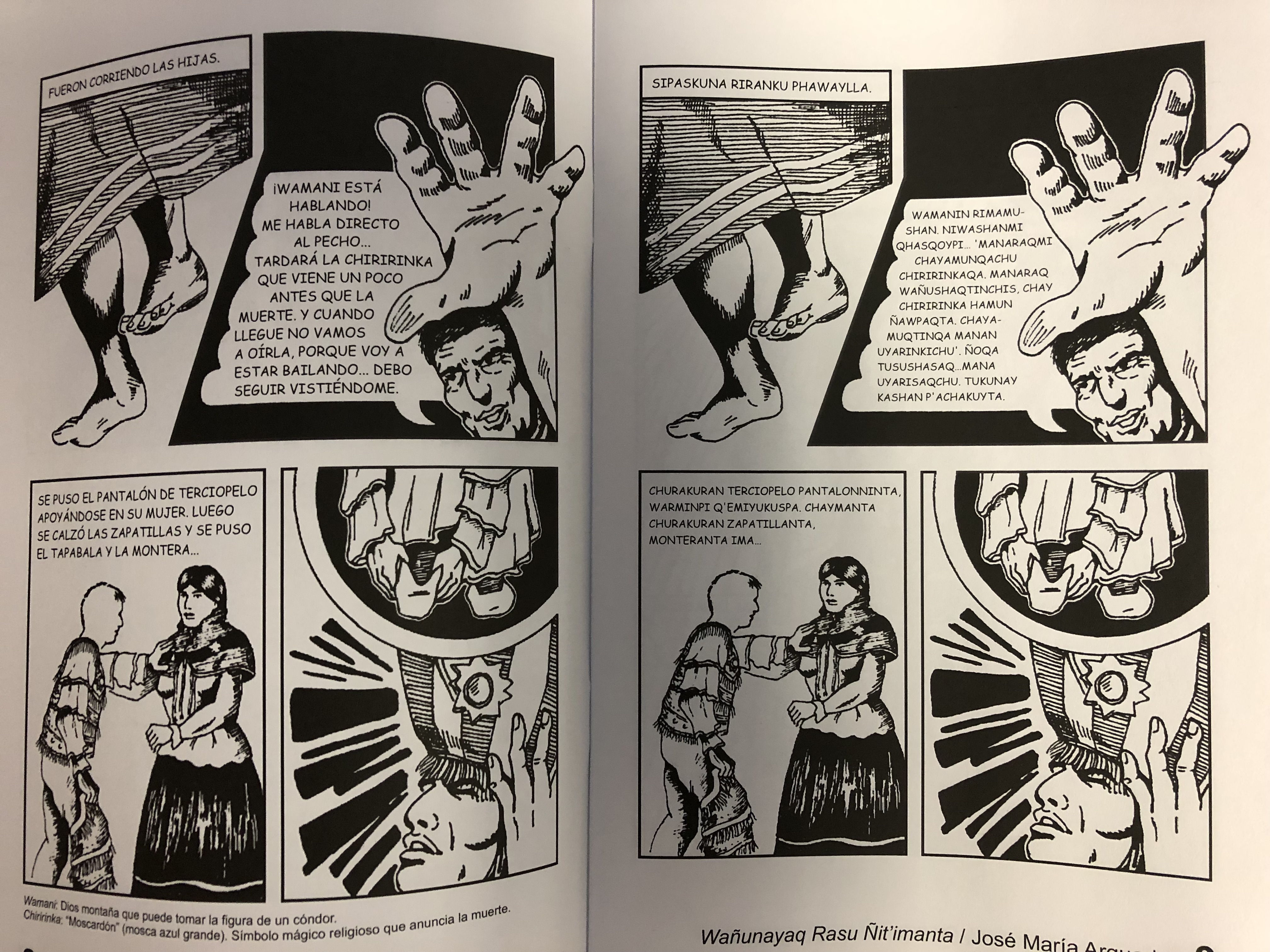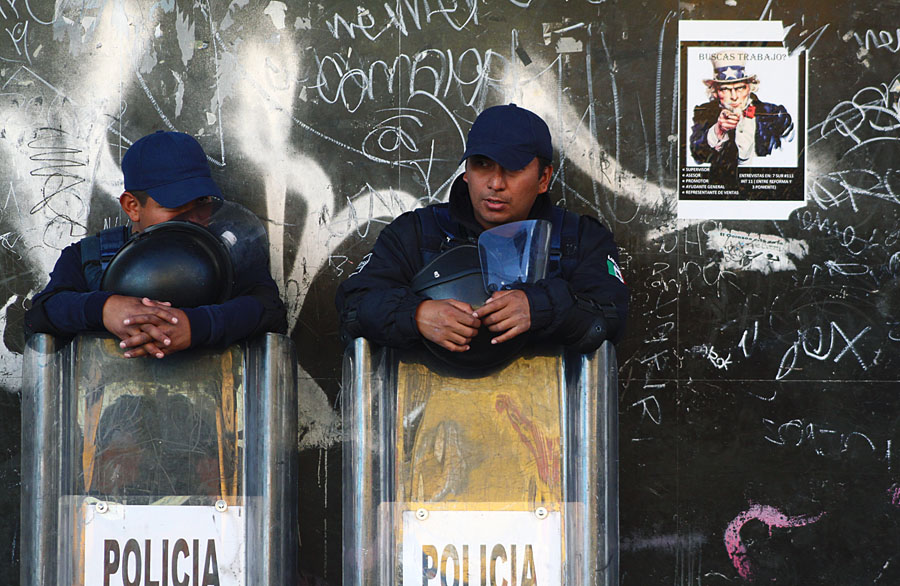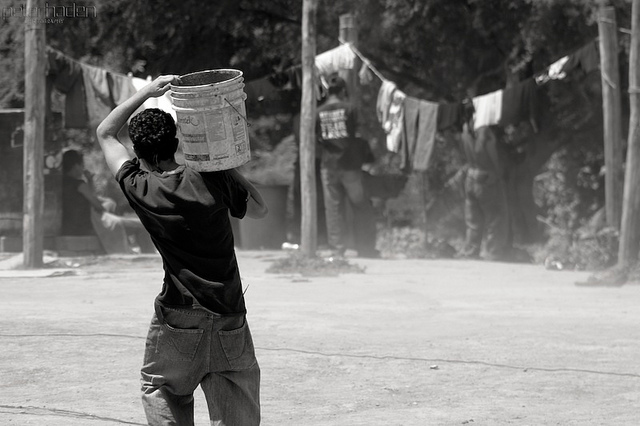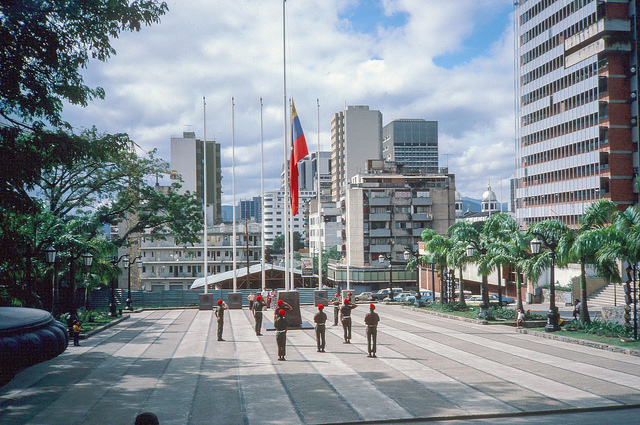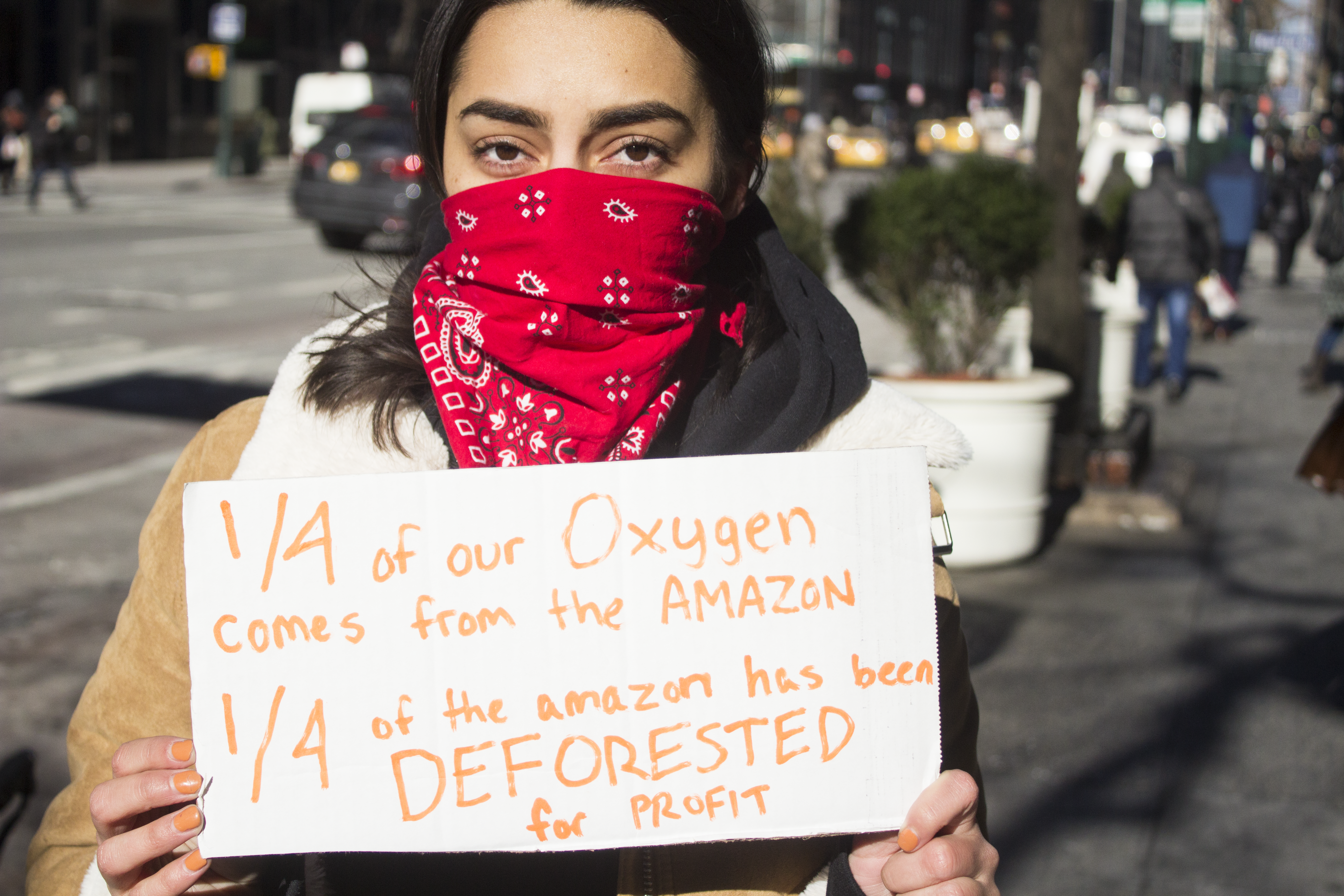
Brazil, Dispatches, News Briefs, Photo Essays, United States
New Yorkers Join Protesters Around the World in Fight for Brazilian Amazon
January 31, 2019 By Jacquelyn Kovarik
Demarcação já! Demarcação já! (Demarcation now! Demarcation now!)
This was the chant of a sparse but vocal group of protesters gathered outside the Brazilian Consulate in Midtown Manhattan on Thursday afternoon. Considering it was the coldest day in New York City since February 2016 and the coldest Jan. 31 ever recorded in the city, it was surprising that any protesters were out at all.
“We fight for Amazônia,” said Ana Luisa Anjos, one of the organizers of the NYC Procession for Amazonian Indigenous Peoples. “Demarcation” refers to the legal protection of Indigenous lands in Brazil.
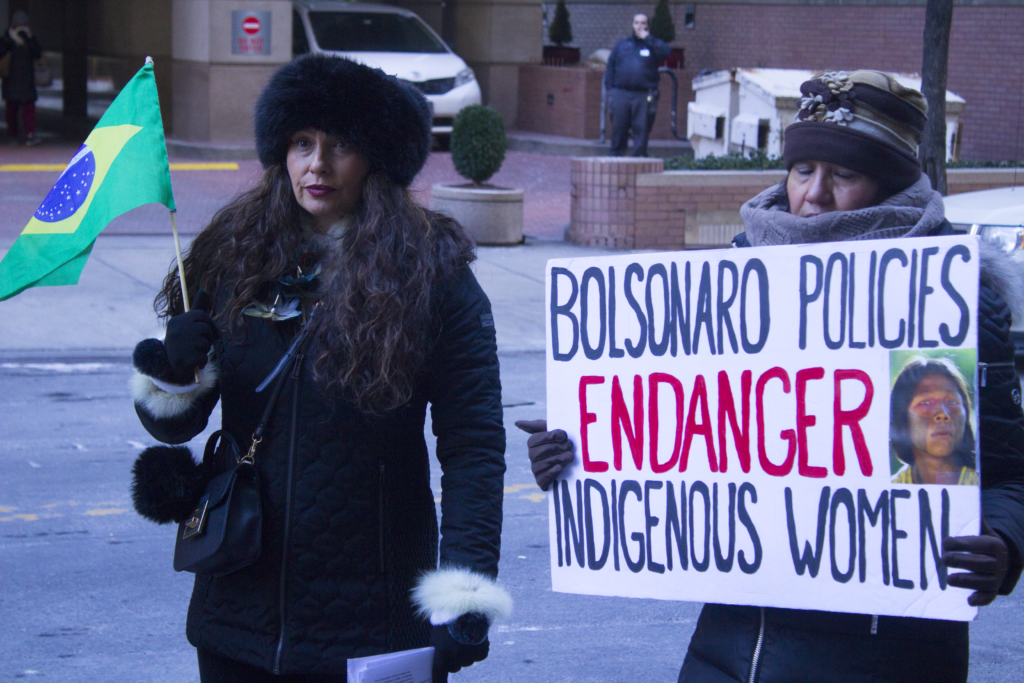
Protesters stand outside the Brazilian Consulate in New York City, denouncing Brazilian President Jair Bolsonaro’s crackdown on Indigenous rights. (Photo by Jacquelyn Kovarik)
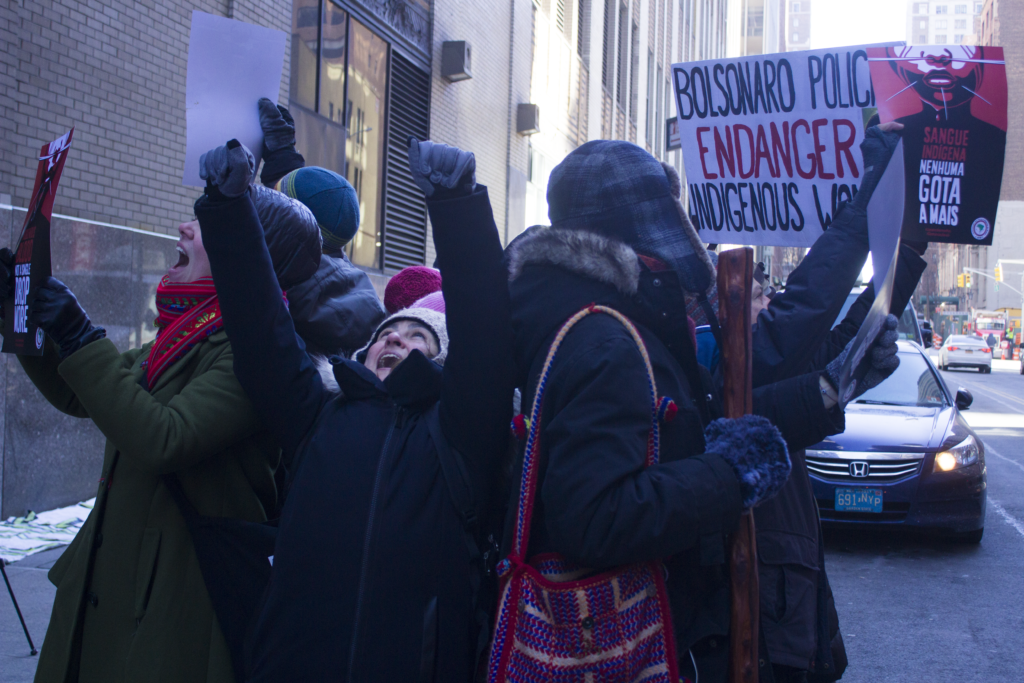
“Demarcação ya! Demarcação ya! / Demarcation now! Demarcation now!” screamed the protesters, demanding for the legal protection of Indigenous lands. (Photo by Jacquelyn Kovarik)
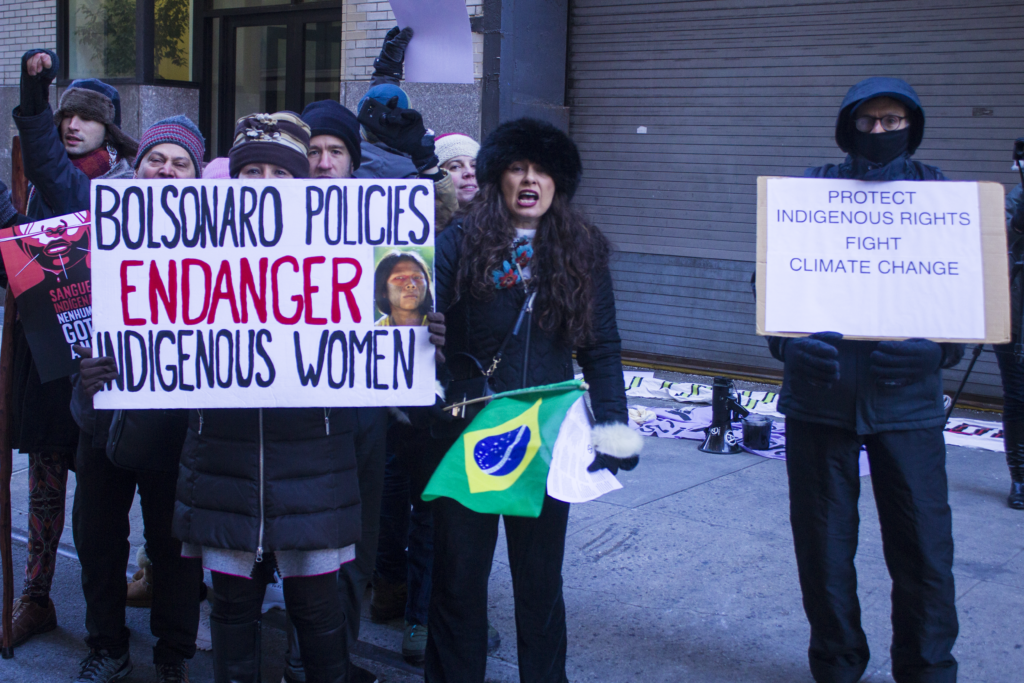
The protesters highlighted the connection between the de-protection of Indigenous Amazon land and climate change. Transnational interests in the Brazilian Amazon largely stem from mega-corporations interested in extractive industries such as mining, gold, wood and pharmaceuticals. (Photo by Jacquelyn Kovarik)
The protest outside of the Brazilian consulate in New York was one of many that took place Thursday. It was organized by supporters of Indigenous Peoples in Brazil and with the support of the Rainforest Foundation US, Defend Democracy in Brazil, Indigenous Solidarity Rebellion (XR), Rebeldía Radio, Earth Strike, 32 May Days and AnarkoArtLab.
Los Angeles, London, Berlin, Madrid, Milan, Paris, Washington D.C. and cities across Brazil held protests of their own as well. The global demonstrations were led by APIB, the Association of Indigenous Peoples of Brazil, as the culmination of their “Indigenous blood – not a single drop more” campaign. Also known as “Red January,” the demonstrations marked the first month in power of Brazilian President Jair Bolsonaro.
Mere hours into taking office on Jan. 1, Bolsonaro transferred the responsibility of demarcating Indigenous lands from Brazil’s Indigenous Affairs Department FUNAI to the Agriculture Ministry, thereby opening the door to industries seeking access to protected areas of the Amazon.
“Even before Bolsonaro’s election, Indigenous peoples in Brazil were already facing violence and loss of land from agri-business oligarchs, mining corporations and illegal loggers,” said Daniel Lavelle, the U.S. director of Survival International, one of the main organizers of the “Red January” protests. “Upon taking office, Bolsonaro immediately transferred responsibility for Indigenous land demarcation and regulation to the agri-business-controlled Agriculture Ministry. This is a virtual declaration of war against Brazil’s Indigenous peoples.”
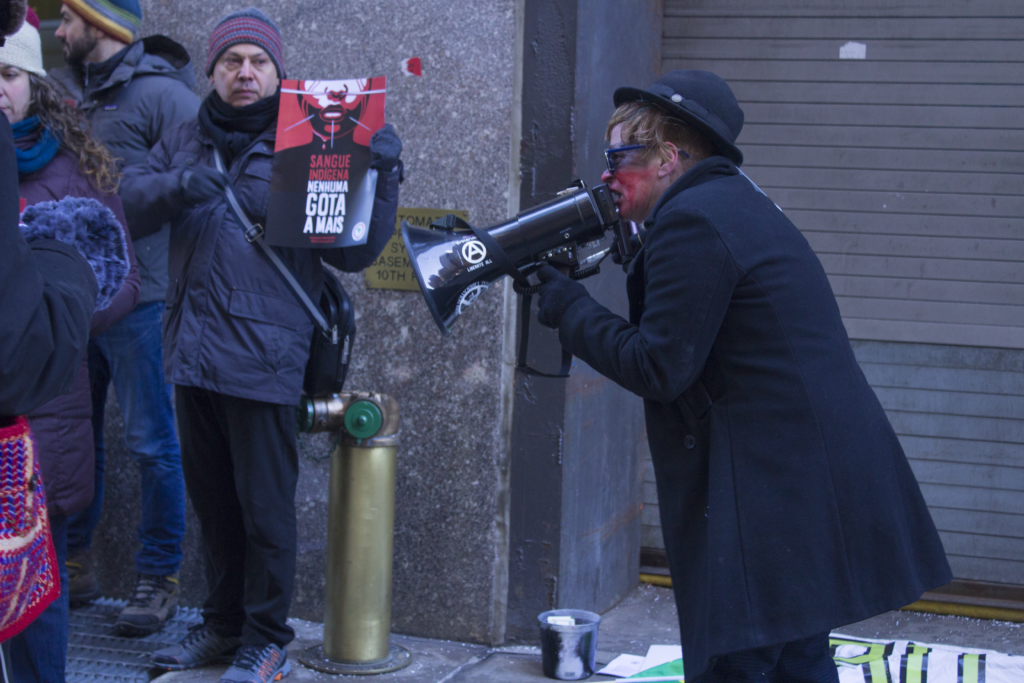
“Nestle! Coca Cola! Unilever! Maggi! Belo Sun! P&G! Kraft! Milka! Monsanto! Johnson & Johnson!” Adriana Varella listed corporations that are currently extracting resources from the Brazilian Amazon while standing outside the Brazilian consulate. (Photo by Jacquelyn Kovarik)
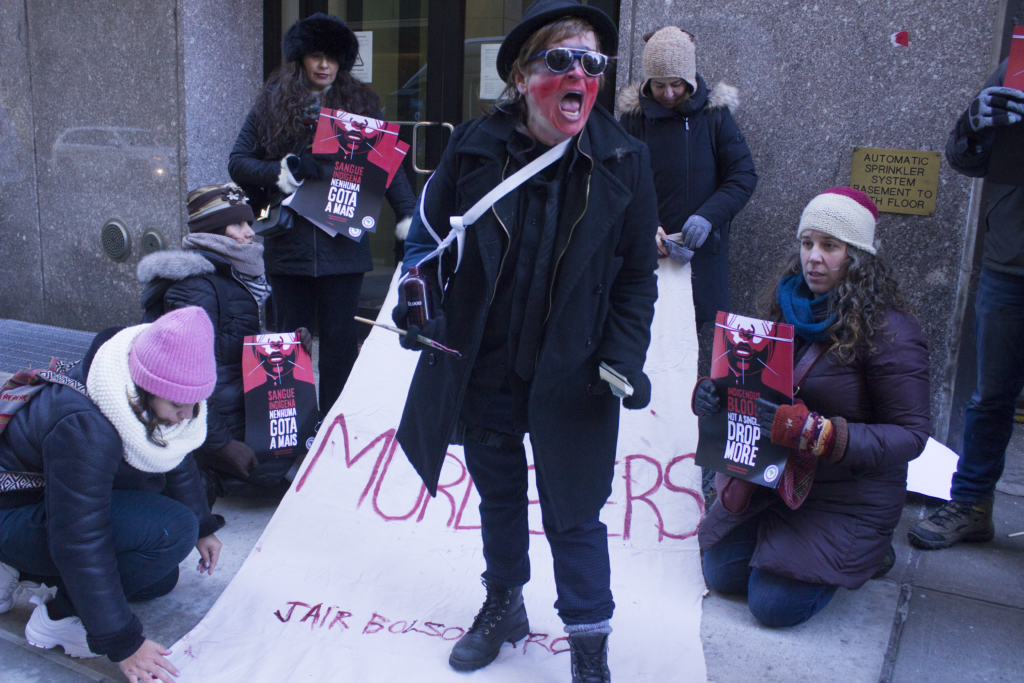
“We write their names in blood.” Protesters used dark red paint to make a “List of Murderers” outside of the consulate. Jair Bolsonaro’s name was at the top of the list. (Photo by Jacquelyn Kovarik)
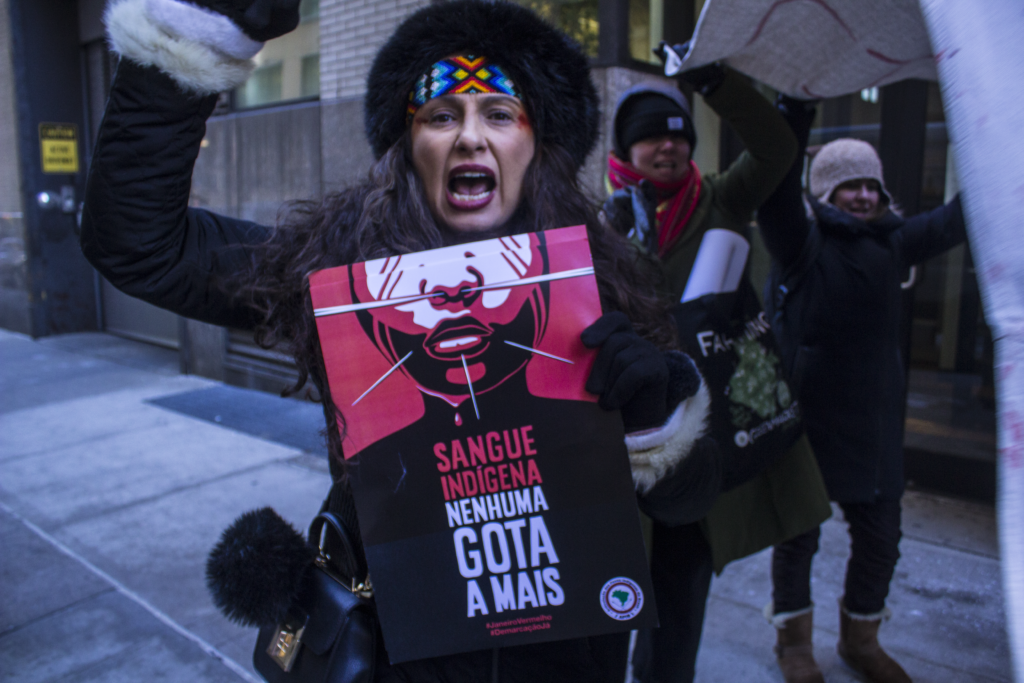
Ana Luisa Anjos holds a sign that says, “Indigenous Blood Not A Single Drop More.” (Photo by Jacquelyn Kovarik)
The protesters in New York emphasized that the anti-Indigenous violence of the Bolsonaro administration not only affects Brazilian Indigenous Peoples, but the globe. “If the Indigenous people are dead and the Amazon rainforest destroyed, it will be the end of humanity on this planet,” yelled Adriana Varella into a megaphone as the group marched down East 41st Street. “We all need the Amazon.” Varella is the founder of Defend Democracy in Brazil and one of the key organizers of the demonstrations in New York.
Despite the alarming anti-Indigenous measures that the Bolsonaro administration has taken over the past month, the message of the “Red January” protests is one of hope and resilience.
“Having suffered 500 years of genocide and massacres, Brazil’s tribal peoples are not going to be cowed by President Bolsonaro, however abhorrent and outdated his views are,” said Stephen Corry, the London-based executive director of Survival International. “And it’s been inspiring to see how many people around the world are standing with them.”
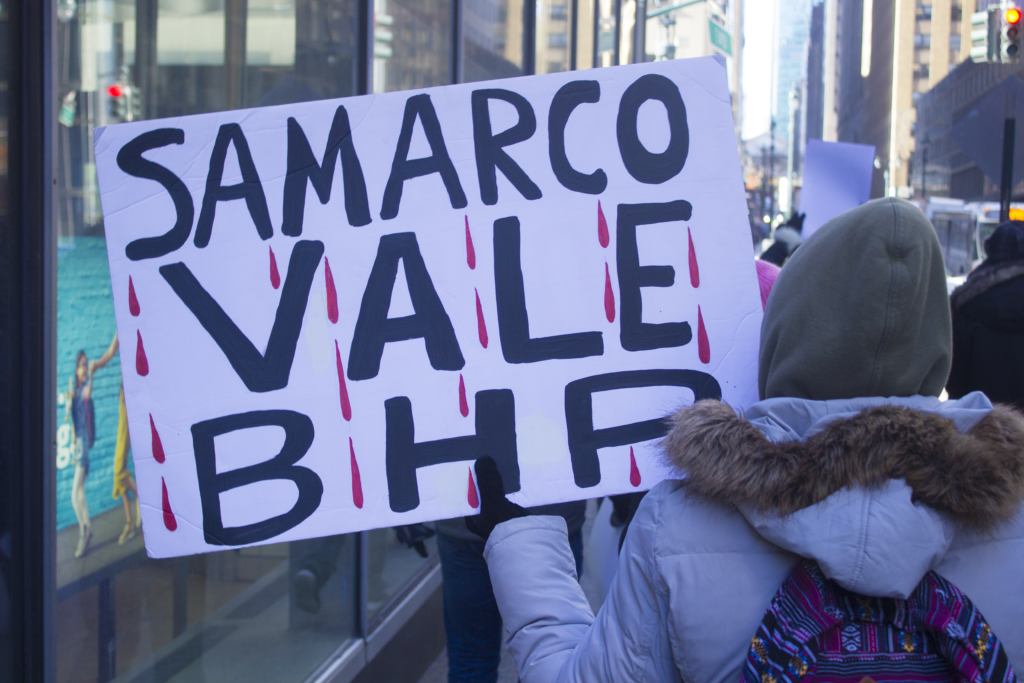
On Nov. 5, 2015, the Samarco iron ore mine in Southeast Brazil burst and spilled 60 million cubic meters of iron ore waste. In January, the oil giants behind the dam, BHP and Vale, reached a settlement with the Brazilian government. (Photo by Jacquelyn Kovarik)
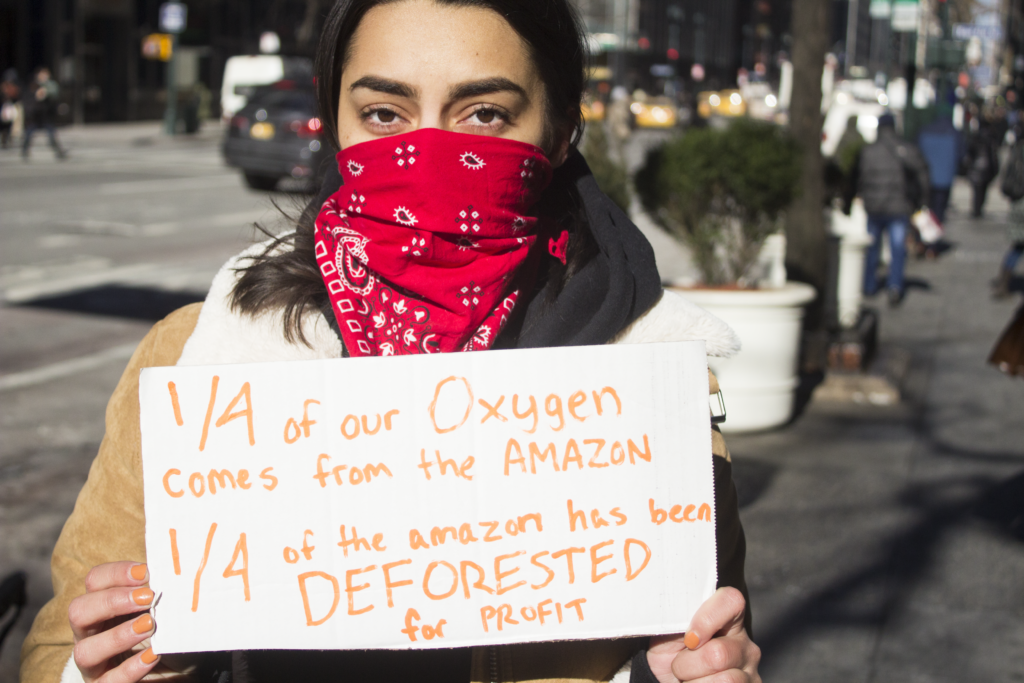
“This fight belongs to us all.” One protester of Mixteco and Aztec heritage said she stands in solidarity with the Indigenous Peoples of the Brazilian Amazon. (Photo by Jacquelyn Kovarik)
About Jacquelyn Kovarik
Jacquelyn is currently a Foreign Language Area Studies Fellow at New York University, where she is studying Quechua and pursuing a masters degree in Latin American Studies and Journalism. Her research focuses on contemporary social change in Bolivia and Peru, with an emphasis on transitional justice and initiatives for well-being and resilience in Andean communities. In 2016 she filmed and produced a documentary about families fighting for reconciliation in a post-dictatorship Bolivian society.
